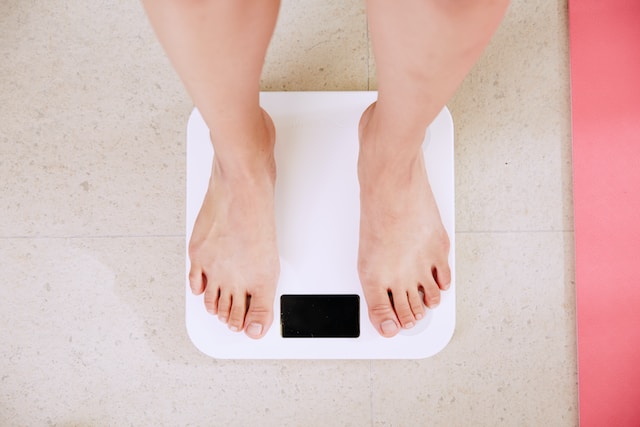Losing weight can be challenging for anyone, but it can be especially difficult for people with hypothyroidism. Hypothyroidism is a condition in which the thyroid gland does not produce enough hormones, leading to a slower metabolism and potential weight gain. However, there are several strategies that can help individuals with hypothyroidism lose weight, including dietary changes, exercise, and medication management.

- Manage your medications: If you have been diagnosed with hypothyroidism, it is important to work with your healthcare provider to manage your medication. Taking the right dose of thyroid hormone replacement medication can help regulate your metabolism and increase energy levels, making it easier to lose weight. It may take some time to find the right medication and dosage, so be patient and work closely with your healthcare team to ensure you are receiving the best treatment.
- Eat a balanced diet: Eating a healthy, balanced diet is important for anyone looking to lose weight, but it is especially important for individuals with hypothyroidism. A balanced diet should include a variety of nutrient-dense foods, such as fruits, vegetables, whole grains, lean proteins, and healthy fats. It is also important to avoid highly processed foods, refined carbohydrates, and sugary drinks, which can contribute to weight gain and exacerbate hypothyroidism symptoms.
- Practice portion control: In addition to eating a balanced diet, practicing portion control can help you lose weight with hypothyroidism. Eating smaller, more frequent meals throughout the day can help keep your metabolism steady and prevent overeating. Using smaller plates, measuring your food, and avoiding distractions while eating can also help you control your portions and reduce the risk of overeating.
- Incorporate physical activity: Regular physical activity is important for weight loss and overall health, but it can be challenging for individuals with hypothyroidism who may experience fatigue and low energy levels. However, even small amounts of physical activity can be beneficial. Start by incorporating low-impact exercises, such as walking or swimming, into your daily routine. Gradually increase the duration and intensity of your workouts as your energy levels improve.
- Practice stress management: Stress can exacerbate hypothyroidism symptoms and contribute to weight gain. Finding ways to manage stress, such as practicing yoga, meditation, or deep breathing exercises, can help reduce stress and promote weight loss. It is also important to get adequate sleep and practice good sleep hygiene to promote overall health and well-being.
- Consider a weight loss program: If you are struggling to lose weight with hypothyroidism, consider joining a weight loss program or working with a registered dietitian. A professional can help you develop a customized diet and exercise plan that takes your hypothyroidism into account. They can also provide support, accountability, and motivation to help you achieve your weight loss goals.
- Avoid crash diets: Crash diets or extreme calorie restriction can be harmful for individuals with hypothyroidism. These diets can slow down your metabolism and exacerbate hypothyroidism symptoms, leading to further weight gain. Instead, focus on making sustainable lifestyle changes that promote long-term weight loss and overall health.
In conclusion, losing weight with hypothyroidism can be challenging, but it is not impossible. By working with your healthcare team, eating a balanced diet, practicing portion control, incorporating physical activity, managing stress, and avoiding crash diets, you can achieve your weight loss goals and improve your overall health and well-being. Remember to be patient and persistent, and seek support from professionals if needed.
